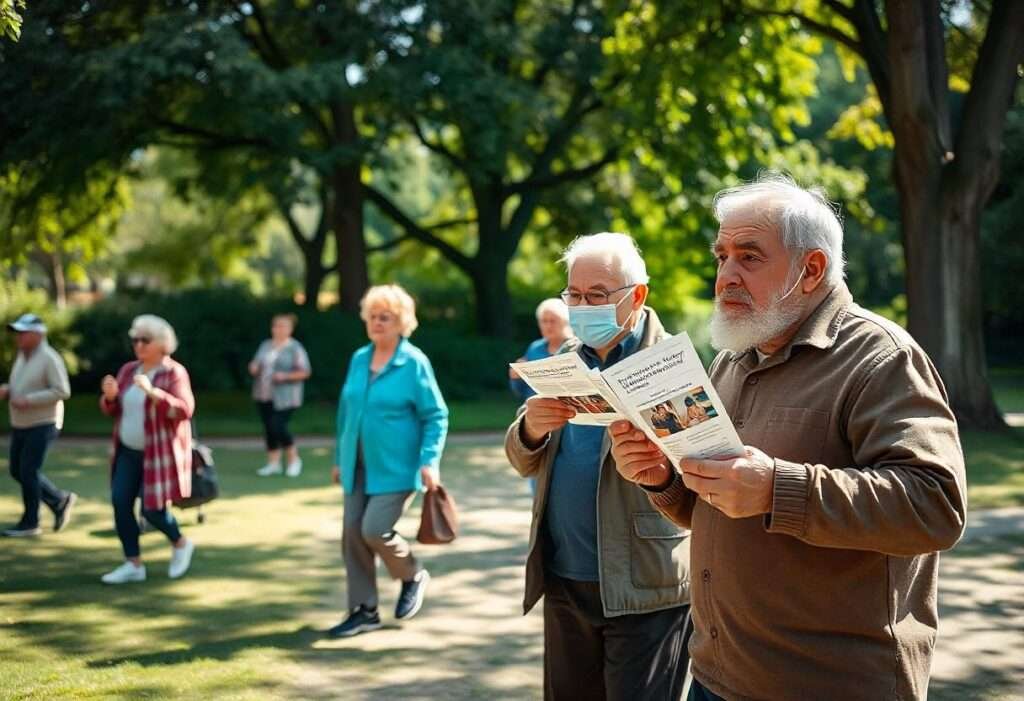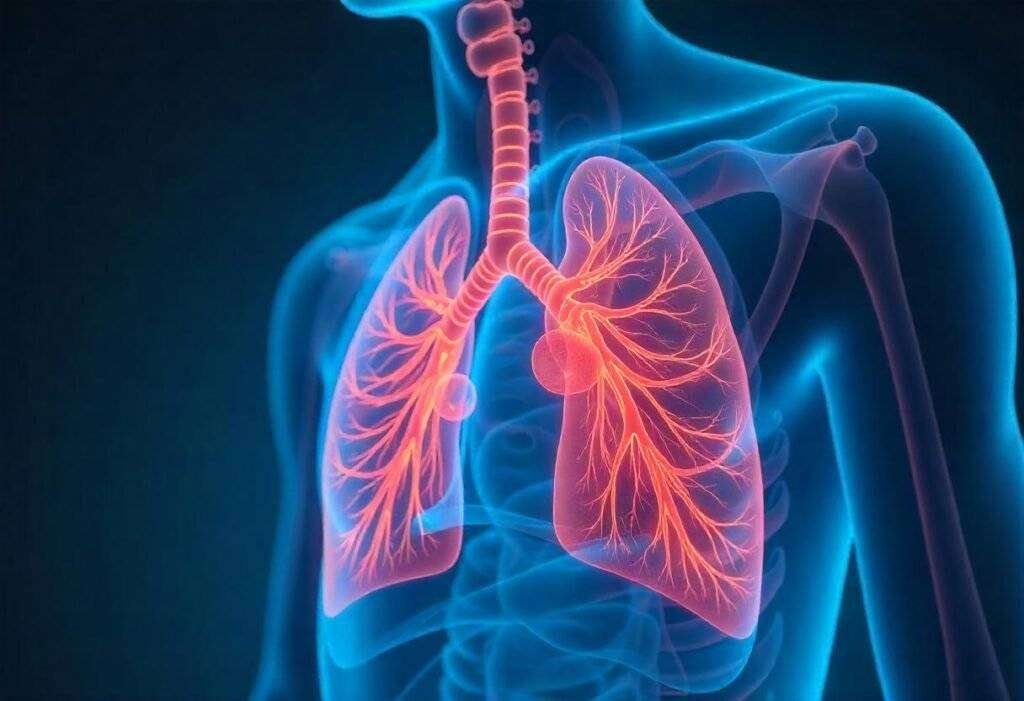Introduction to Respiratory Infections in the Elderly
Respiratory infections in elderly pose a significant health risk not only to seniors but also to individuals of all ages. As people age, their immune systems generally weaken, increasing susceptibility to a range of infections, particularly respiratory ones. This heightened vulnerability means that respiratory infections in elderly can lead to more severe health complications in the elderly compared to younger populations.
Table of Contents
In this article, we will explore the most common symptoms associated with respiratory infections in the elderly, providing insight into how these conditions manifest in this age group. We will also examine the underlying causes of such infections, highlighting the factors that contribute to their occurrence in the elderly. Additionally, we will discuss effective prevention and treatment strategies aimed at reducing the risks and impacts of respiratory infections in the elderly individuals, ensuring they receive the necessary care to maintain their health and well-being. Understanding these aspects is crucial for addressing the challenges posed by respiratory infections within the aging population.

Understanding the Risks
Elderly individuals are at a higher risk of developing respiratory infections in the elderly due to several factors:
- Weakened Immune System: As we grow older, it is observed that our immune system tends to become less efficient and effective when it comes to combating infections and diseases. This gradual decline in immune function means that our bodies may struggle more to fend off illnesses that we were once able to easily resist when we were younger.
- Chronic Health Conditions: Numerous older adults often face a range of underlying health conditions, including but not limited to heart disease, diabetes, and lung disease. These PRE-existing issues can significantly compromise their overall respiratory health, making them more vulnerable to respiratory complications. As these individuals age, the effects of their chronic conditions may become more pronounced, further impacting their ability to maintain proper respiratory function.
- Reduced Lung Function: As people age, it is a natural process for lung function to progressively decline over time. This decline in lung capacity and efficiency can lead to increased difficulty for the lungs in effectively clearing out infections that may arise.
- Limited Mobility: Reduced mobility can limit exposure to fresh air and sunlight, both of which are important for maintaining respiratory health.

Common Symptoms of Respiratory Infections in the Elderly
While the symptoms of respiratory infections in the elderly can vary, some common signs to watch for in the elderly include:
- Cough: Experiencing a persistent cough that lingers over time, particularly one that produces mucus, is a widespread and well-recognized symptom often associated with respiratory infections. Such a cough can vary in intensity and may become especially bothersome, indicating the body’s response to infection and irritation in the respiratory tract.
- Shortness of Breath: The sensation of difficulty breathing, notably during physical exertion or even at rest, can serve as a crucial warning sign of a potentially serious respiratory infection. It is essential to pay attention to this symptom, as it may indicate that the lungs are struggling to provide adequate oxygen to the body, which could necessitate further medical evaluation.
- Fever: The presence of a fever, particularly one that is notably high, often serves as a clear indicator of a severe infection in the body. Fever is the body’s natural response to infection, as it attempts to fight off harmful pathogens, and monitoring the temperature can provide valuable insight into the severity of the illness.
- Chest Pain: Experiencing pain in the chest, especially when associated with coughing, can be a significant symptom pointing to pneumonia or other types of lung infections. This discomfort may vary in severity and can indicate inflammation or infection within the respiratory system, prompting the need for a thorough medical assessment.
- Fatigue: A persistent feeling of tiredness and weakness is a common symptom experienced by individuals suffering from various respiratory infections. This fatigue can significantly affect daily activities and overall quality of life, highlighting the body’s need for rest and recovery as it fights off the underlying infection.
- Confusion or Disorientation: In certain instances, severe respiratory infections can lead to symptoms of confusion or disorientation, particularly affecting older adults. This change in mental status can be alarming and may indicate that the infection is impacting not just the respiratory system but also overall cognitive function, requiring prompt attention and care.
Types of Respiratory Infections in the Elderly
Several types of respiratory infections in the elderly can affect the elderly:
- Pneumonia: This condition is identified as an infection affecting the lungs and can stem from various sources such as bacteria, viruses, or fungi. Those who are suffering from pneumonia may experience a range of symptoms that commonly include a high fever, persistent cough, shortness of breath, and discomfort or pain in the chest area. The severity of these symptoms can vary significantly, with some individuals requiring medical attention to manage their condition effectively.
- Influenza (Flu): The flu, or influenza, is considered a highly contagious viral infection that spreads easily among individuals. It typically presents with a combination of symptoms, which may include elevated body temperature, a troublesome cough, a sore throat, a runny or stuffy nose, muscle aches throughout the body, and an overwhelming sense of fatigue. Due to its contagious nature, influenza can lead to widespread outbreaks, particularly during certain seasons of the year.
- Bronchitis: This medical issue refers to the inflammation of the bronchial tubes, which are essential for conducting air to and from the lungs. When someone has bronchitis, they may endure a persistent cough that can be accompanied by wheezing and difficulties with breathing. The inflammation can be the result of prolonged exposure to irritants like smoke or pollution, or it may follow a respiratory infections in the elderly, impacting one’s overall lung health.
- COVID-19: This viral infection, caused by the novel coronavirus, can trigger a diverse array of symptoms in those who become infected. Common indicators include fever, coughing, difficulty breathing, excessive tiredness, and the notable loss of taste or smell. In more severe instances, individuals may develop pneumonia or other serious respiratory complications, which can lead to significant health risks. The wide variability in symptoms highlights the importance of monitoring one’s health and seeking medical help if necessary.
Prevention Strategies
While it’s impossible to completely eliminate the risk of respiratory infections in the elderly, there are several preventive measures that can help protect the elderly:
- Vaccination: It is essential to stay up-to-date on your vaccinations, which include getting the flu shot annually as well as the pneumonia vaccine when recommended. These vaccinations play a pivotal role in protecting not only your health but also the health of those around you by reducing the spread of these diseases.
- Hand Hygiene: It is important to promote and encourage frequent handwashing with soap and water. This practice is particularly crucial before eating meals and after using the bathroom, as keeping hands clean helps eliminate germs and prevent illnesses from spreading.
- Healthy Lifestyle: Embracing a healthy lifestyle can significantly contribute to a stronger immune system. This includes maintaining a balanced diet that incorporates a variety of nutrients, engaging in regular physical exercise to keep the body active, and ensuring you get adequate sleep each night to allow your body to recover and replenish its energy.

- Avoid Crowds: Especially during the flu season, it is advisable to minimize your exposure to crowded places. These environments are often breeding grounds for germs, which can spread rapidly among individuals. By avoiding these situations, you can help protect yourself from respiratory infections.
- Stay Hydrated: Maintaining proper hydration by drinking plenty of fluids each day is beneficial. It helps thin mucus in the respiratory tract, making it easier for your body to expel it through coughing. Staying hydrated also supports overall health and helps your body function optimally.
- Regular Check-ups: Attending regular medical check-ups is an important practice for identifying and treating any underlying health conditions. These conditions can increase your risk of developing respiratory infections in the elderly. Proactive healthcare can help catch potential issues early and promote better health outcomes.
Treatment Options
The treatment for respiratory infections in the elderly will depend on the specific type of infection and its severity. Some common treatment options include:
- Antibiotics: Antibiotics can be effective in treating bacterial infections, such as pneumonia.
- Antiviral Medications: Antiviral medications can help shorten the duration of viral infections like the flu.
- Over-the-Counter Medications: Over-the-counter medications, such as pain relievers and cough suppressants, can help alleviate symptoms.
- Rest and Hydration: Getting plenty of rest and staying hydrated are essential for recovery.
FAQ
- How can I help prevent my elderly loved one from getting a respiratory infection?
- Encourage frequent handwashing, especially before eating and after using the bathroom.
- Ensure they get vaccinated against the flu and pneumonia.
- Promote a healthy lifestyle, including a balanced diet and regular exercise.
- Help them avoid crowds during flu season.
- What are the warning signs of a serious respiratory infection in the elderly?
- Rapid breathing or difficulty breathing
- Confusion or disorientation
- High fever
- Persistent cough
- Chest pain
- When should I seek medical attention for my elderly loved one with a respiratory infection?
- If they have a high fever, severe cough, difficulty breathing, or signs of confusion or disorientation.
- If their symptoms worsen or don’t improve after a few days of home care.
- How can I help my elderly loved one recover from a respiratory infection?
- Encourage plenty of rest.
- Help them stay hydrated by offering plenty of fluids.
- Use a humidifier to add moisture to the air.
- Assist with over-the-counter medications as directed by a healthcare provider.
- What are some tips for caring for respiratory infections in the elderly at home?
- Keep their room well-ventilated.
- Clean and disinfect surfaces regularly.
- Wash your hands frequently, especially before and after caring for your loved one.
- Encourage them to cough into a tissue or their elbow.
By understanding the risks, symptoms, and prevention strategies, we can help protect our elderly loved ones from the serious consequences of respiratory infections.


